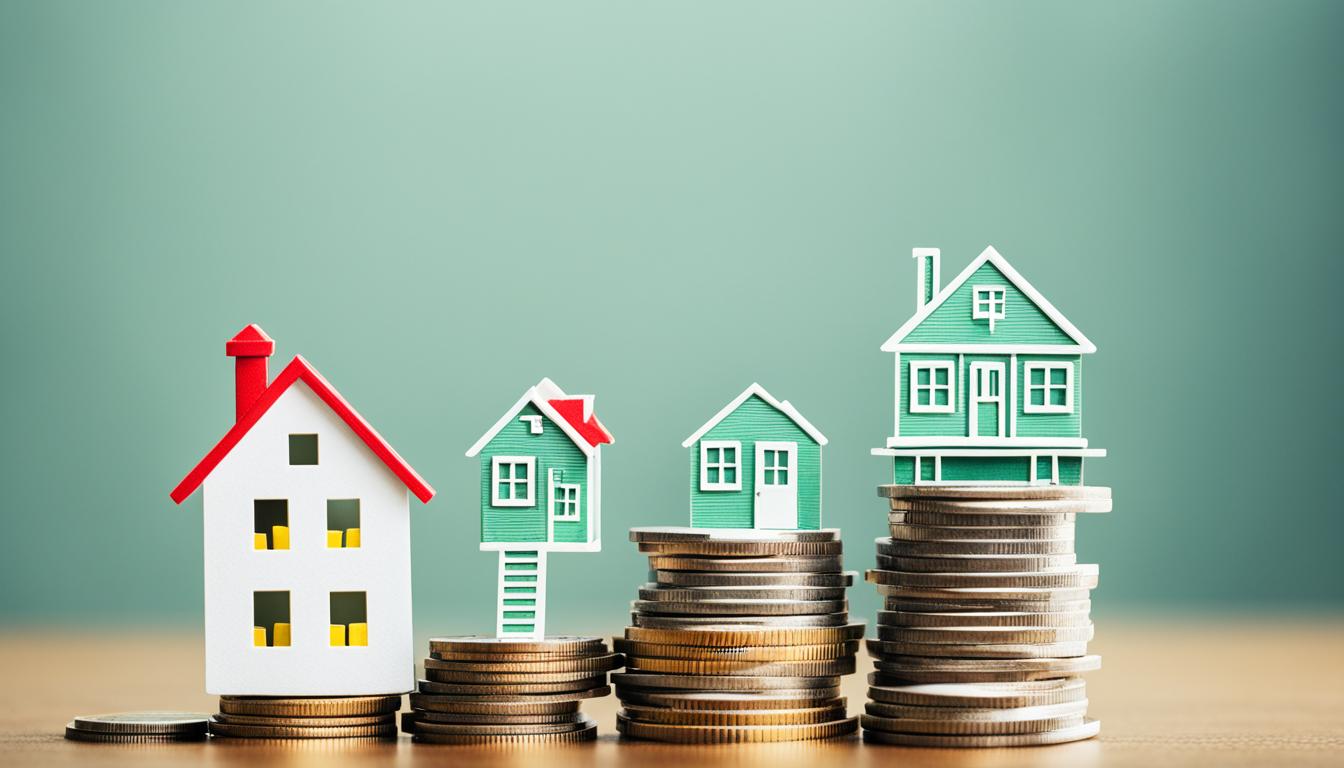Unlocking Additional Funds with Second Mortgage Lenders for Financial Support
Are you a homeowner looking for a way to access additional funds to support your financial goals? Look no further than second mortgage lenders. With a second mortgage, you can tap into the equity in your home and secure the financing you need for various purposes. Whether you want to consolidate your debts, make home improvements, cover education expenses, or have emergency funds available, second mortgages can provide the solution.
Second mortgages come in the form of home equity loans or home equity lines of credit (HELOCs). These loans come with several advantages, including lower interest rates compared to other types of loans. Additionally, the interest you pay on your second mortgage may be tax deductible, providing you with potential tax benefits.
It’s important, however, to carefully consider your financial situation and consult with a financial advisor before pursuing a second mortgage. While second mortgages offer many benefits, there are also factors to take into account, such as the risk to your home ownership and the additional debt burden. By evaluating your options and working with reputable second mortgage lenders, you can make an informed decision that aligns with your financial goals.
Key Takeaways
- Second mortgages allow homeowners to access additional funds by tapping into the equity in their homes.
- These loans can be used for debt consolidation, home improvements, education expenses, and emergency funds.
- Homeowners can benefit from lower interest rates and potential tax deductions on the interest paid.
- Careful evaluation of your financial situation and consultation with a financial advisor is crucial before pursuing a second mortgage.
- Considering the potential risks, such as foreclosure and added debt burden, is essential when exploring second mortgage financing options.
Understanding Second Mortgages and HELOCs
A second mortgage is a valuable financial tool that allows homeowners to leverage the equity they have built up in their homes. This type of loan provides access to additional funds that can be used for various purposes, including debt consolidation, home improvements, education expenses, and emergency funds.
There are two primary types of second mortgages: home equity loans and home equity lines of credit (HELOCs). It’s important to understand the differences between these options and choose the one that best meets your financial needs.
Home Equity Loans
A home equity loan, also known as a second mortgage loan, allows homeowners to borrow a lump sum of money against the equity in their homes. This loan typically comes with a fixed interest rate, meaning your monthly payments remain consistent over the life of the loan. Home equity loans are a popular choice for homeowners who need a large sum of money upfront, such as for a major home renovation project or debt consolidation.
HELOCs
Home equity lines of credit (HELOCs) function more like a credit card than a traditional loan. Homeowners are approved for a specific line of credit, which they can borrow from as needed. HELOCs usually have a variable interest rate, meaning the interest rate can fluctuate over time. This type of second mortgage offers greater flexibility, allowing homeowners to borrow funds as they need them and only pay interest on the amount they have borrowed.
Compared to other forms of credit, such as credit cards, HELOCs often offer lower interest rates and greater borrowing capacity. Many homeowners use HELOCs for ongoing projects or expenses, such as home improvements, education expenses, or emergency funds.
It’s important to carefully evaluate your financial situation and determine which type of second mortgage aligns best with your needs and goals. Consider factors such as your desired loan amount, repayment terms, interest rate preferences, and purpose for borrowing. Consulting with a financial advisor can provide valuable insights and guidance in making this decision.
Reasons for Getting a Second Mortgage
Homeowners choose to get a second mortgage for various reasons. One common reason is to fund home renovations and improvements. With a second mortgage, homeowners can access the equity in their homes to make necessary upgrades or repairs. Whether it’s remodeling the kitchen, adding another bedroom, or creating a dream outdoor space, a second mortgage can provide the financial support needed to turn your home into your dream home.
Another popular use for a second mortgage is debt consolidation. If you have multiple high-interest debts, such as credit card balances or personal loans, a second mortgage can help you consolidate those debts into one manageable loan. By consolidating your debts, you can potentially lower your overall interest rate and simplify your monthly payments, making it easier to become debt-free.
Education expenses can also be covered with a second mortgage. Whether you’re pursuing a higher degree or financing your child’s education, a second mortgage can provide the necessary funds for tuition fees, textbooks, and living expenses. By utilizing the equity in your home, you can invest in education without the burden of high-interest student loans.
In times of financial emergencies, a second mortgage can be a valuable resource for accessing emergency funds. Whether it’s unexpected medical bills, home repairs, or other urgent expenses, a second mortgage can provide the necessary cash flow to address these immediate needs. Instead of relying on high-interest credit cards or personal loans, a second mortgage can offer a more cost-effective solution.
Benefits of Getting a Second Mortgage
- Access to funds for home renovations and improvements
- Potential for lower interest rates and simplified monthly payments through debt consolidation
- Opportunity to invest in education without high-interest student loans
- Availability of emergency funds for unexpected expenses
When considering a second mortgage, it’s important to evaluate your financial situation, assess your ability to repay the loan, and consult with a mortgage advisor. By carefully weighing the benefits and risks, you can make an informed decision and use a second mortgage as a valuable financial tool that suits your needs.

Pros and Cons of Getting a Second Mortgage
Before deciding to get a second mortgage, it’s important to weigh the pros and cons. Let’s take a closer look at the advantages and disadvantages of accessing additional funds through a second mortgage.
Pros of Second Mortgages:
- Access to Additional Funds: One of the main benefits of a second mortgage is the ability to access additional funds by leveraging the equity in your home.
- Lower Interest Rates: Second mortgages often come with lower interest rates compared to other forms of credit, such as credit cards or personal loans.
- Tax Deductible Interest: In many cases, the interest paid on a second mortgage may be tax deductible, providing potential savings.
- Versatile Use of Funds: Homeowners can use the funds from a second mortgage for a variety of purposes, including home renovations, debt consolidation, education expenses, and more.
- Flexible Repayment Terms: Second mortgages typically offer flexible repayment terms, giving borrowers options that suit their financial needs and goals.
Cons of Second Mortgages:
- Risk to Home Ownership: Taking out a second mortgage puts your home at risk. If you’re unable to make payments, there is a possibility of foreclosure.
- Additional Debt Burden: A second mortgage adds another level of debt to your financial obligations, increasing your monthly debt payments.
- Fees and Closing Costs: When obtaining a second mortgage, there may be fees and closing costs involved, which can add to the overall cost of borrowing.
- Potential Interest Rate Increase: If you have a variable interest rate on your second mortgage, there is a risk that it may increase in the future, leading to higher monthly payments.
- Limited Availability of Equity: The amount of equity you can access through a second mortgage is limited by the value of your home and any outstanding mortgage debt.
It’s crucial to carefully evaluate the financial implications and consider your personal circumstances before proceeding with a second mortgage. Consult with professionals, such as financial advisors or mortgage specialists, to ensure you make an informed decision.
Here’s a visually engaging table summarizing the pros and cons of second mortgages:
| Pros of Second Mortgages | Cons of Second Mortgages |
|---|---|
| Access to additional funds | Risk to home ownership |
| Lower interest rates | Additional debt burden |
| Tax deductible interest | Fees and closing costs |
| Versatile use of funds | Potential interest rate increase |
| Flexible repayment terms | Limited availability of equity |

Conclusion
Second mortgages and home equity lines of credit (HELOCs) can be valuable tools for homeowners seeking financial support by leveraging the equity in their homes. These options provide homeowners with access to additional funds, lower interest rates, potential tax benefits, and flexibility in repayment.
However, it’s crucial to consider the potential risks associated with second mortgages, such as the possibility of foreclosure and the burden of added debt. Therefore, it is vital to carefully evaluate your financial situation before pursuing a second mortgage, seeking guidance from a trusted financial advisor.
Furthermore, choosing the right lender is essential to ensure favorable terms and conditions. By utilizing second mortgages responsibly and making informed decisions, homeowners can achieve financial stability and empowerment.
FAQ
What is a second mortgage?
A second mortgage is a powerful financial tool that allows homeowners to tap into the equity in their homes for various purposes, such as debt consolidation, home improvements, education expenses, and emergency funds.
What are the types of second mortgages available?
There are two primary types of second mortgages – home equity loans and home equity lines of credit (HELOCs). Home equity loans provide a lump sum with a fixed interest rate, while HELOCs operate like a credit card with a variable interest rate.
What can I use a second mortgage for?
Second mortgages can be used for debt consolidation, home improvements, education expenses, and emergency funds. They provide homeowners with the flexibility to use the funds for various purposes.
Why would I get a second mortgage for home improvements?
Homeowners often choose to get a second mortgage for home renovations and improvements as it allows them to access the necessary funds to enhance their living spaces and increase the value of their homes.
Can I use a second mortgage for debt consolidation?
Yes, second mortgages can be used for debt consolidation. By consolidating high-interest debts into a single loan with a lower interest rate, homeowners can save money on interest payments and simplify their repayment process.
Are there any risks involved in getting a second mortgage?
While second mortgages offer benefits, it’s important to consider the risks. These include the risk of foreclosure if you’re unable to make payments, the additional debt burden, fees and closing costs, potential interest rate increase, and limited availability of equity.
What are the benefits of getting a second mortgage?
The benefits of a second mortgage include access to additional funds, lower interest rates compared to other loans, potential tax deductions on the interest paid, flexible repayment terms, and versatile use of funds.
Should I consult with a financial advisor before getting a second mortgage?
Yes, it’s highly recommended to consult with a financial advisor before pursuing a second mortgage. They can provide guidance based on your specific financial situation and help you make an informed decision.

